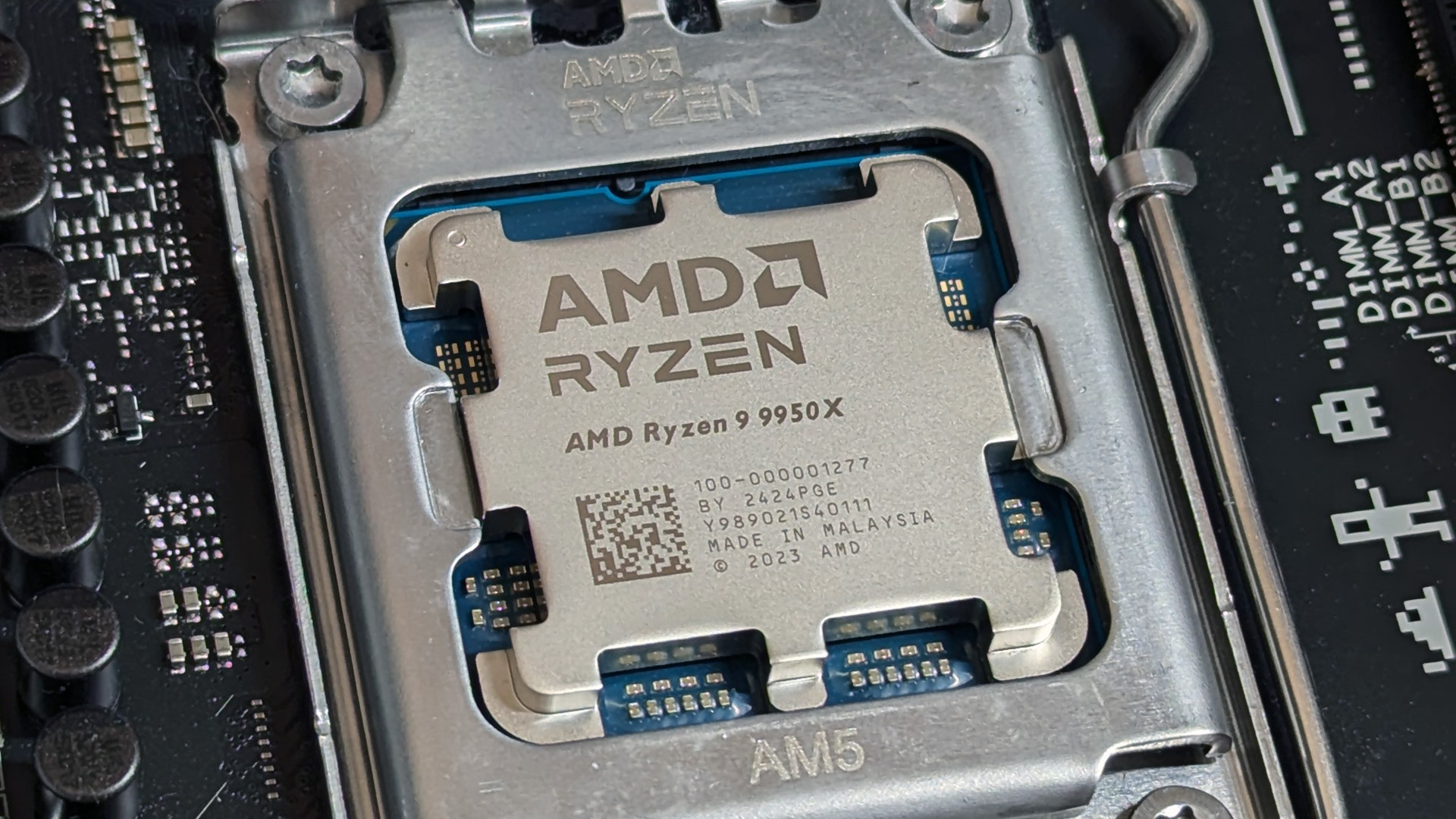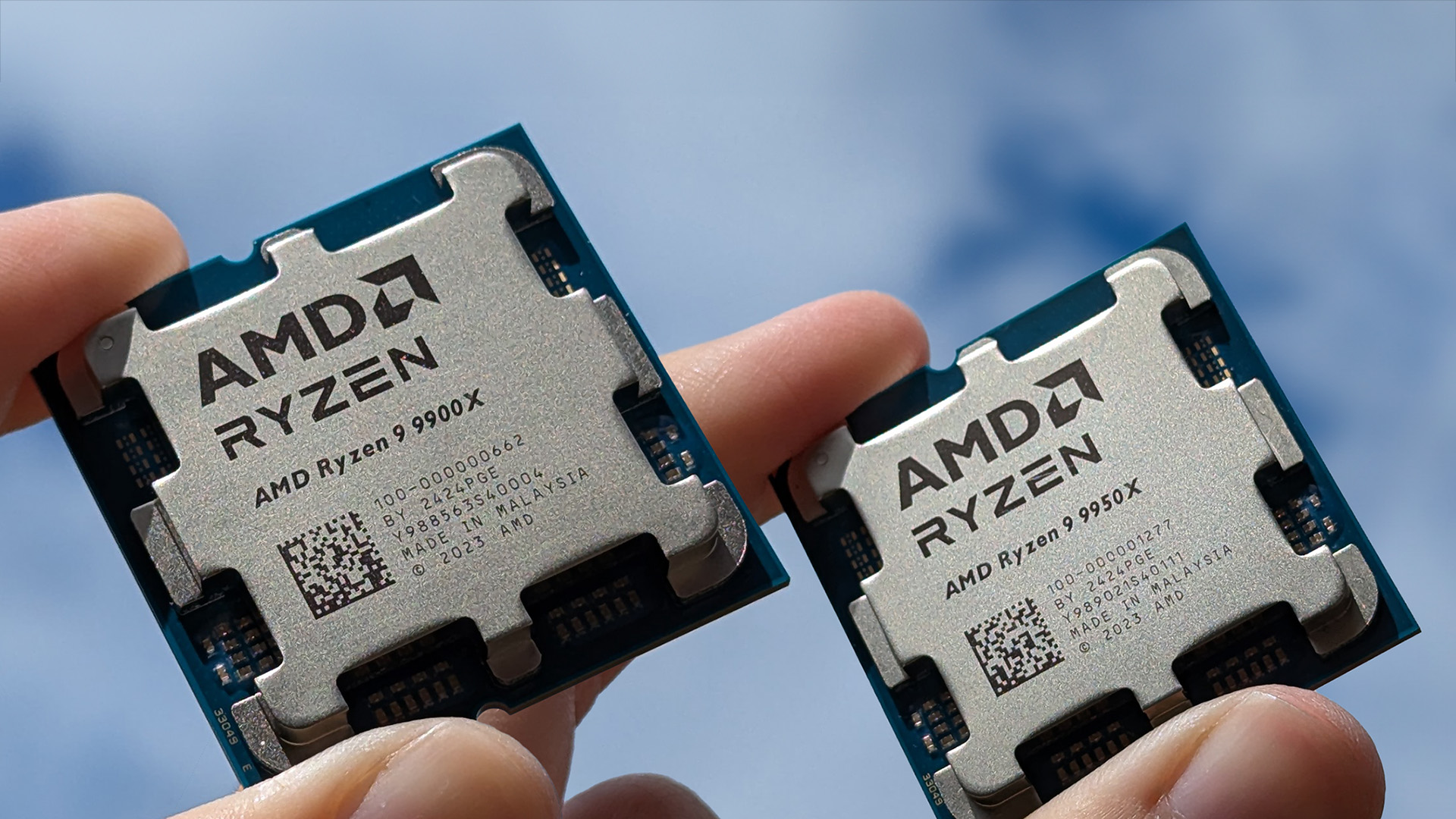AMD promises to fix (some) Ryzen 9000 gaming woes with the next major Windows 11 update
Reviewers saw different results when testing Ryzen 9000 processors than AMD, and we now know why.

What you need to know
- AMD's new Ryzen 9000 processors failed to live up to certain expectations when run through benchmarks by reviewers.
- AMD has shed light on why it believes the benchmarks it saw during internal testing were different than results seen by reviewers.
- One key factor was that AMD's testing was done in Admin mode, while some reviews performed benchmarks using standard accounts.
- AMD's Zen 5 architecture uses a wider branch prediction capacity than previous generations, and at the moment Admin accounts can better utilize that increased capacity.
- "Optimized AMD-specific branch prediction code" will make its way to Windows 11 with the next major update of the operating system, improving Ryzen 9000 gaming performance.
AMD's new Ryzen 9000 desktop CPUs disappointed some reviewers and gamers due to benchmarks not living up to hype created by AMD. Once listed as beating comparable Intel processors by 6%, the new AMD chips are now listed as at parity with the competition from team blue. The discrepancy is caused by a variety of factors, some of which are being addressed by AMD, while others result from differences in benchmarking setups. The end result of the saga is that AMD chips will get better performance when running on a standard account in the near future.
It's common to see some slight variation in performance when testing hardware, but in the case of the Ryzen 9000 chips the difference was more dramatic. AMD shared a community post outlining the cause of the differences and what's being done to improve the performance of the chips:
- "The AMD gaming test suite includes a broad set of esports, AAA, and popular older games, which are a combination of CPU- and GPU-bound titles. Game performance conclusions can be influenced significantly by the makeup of the test suite.
- AMD tested Intel configurations using comparable DDR5-6000 memory as well as Intel default settings-baseline power profile which can have a small impact on gaming performance.
- AMD also tests with Windows Virtualization-based Security (VBS) enabled. This is the default Windows behavior and Microsoft recommends activating VBS to improve security, however it can affect gaming performance.
- The “Zen 5” architecture incorporates a wider branch prediction capacity than prior “Zen” generations. Our automated test methodology was run in “Admin” mode which produced results that reflect branch prediction code optimizations not present in the version of Windows reviewers used to test Ryzen 9000 Series. We have a further update on accessing this performance for users below."
AMD's final two points are arguably the most interesting. VBS improves the security of a system but also bogs down performance. How much that slowdown is depends on the chip being used and other factors. Since VBS is enabled by default, there's a good chance that some reviewers had the feature turned on when testing the performance of the Ryzen 9000 CPUs.
AMD's benchmarks also appear to have differed from those of reviewers because AMD used an Admin account when performing its tests. Using an Admin account enables specific branch prediction optimizations that better take advantage of Zen 5. Those branch predictions are not utilized when logged into a standard account, though that will soon change. AMD and Microsoft are working together to bring the relevant branch predictions to standard accounts as part of an option update. The change is already in testing among Windows Insiders (starting with Windows 11 Build 26100). Improvements vary based on the game played but are generally around 2-3%.
AMD shared the following figures, which indicate game performance in terms of frame per second (FPS).
| Header Cell - Column 0 | Ryzen 9 9950X (Windows 11 version 24H2) | Ryzen 9 9950X (Windows 11 version 23H2) | Difference |
|---|---|---|---|
| Far Cry 6 | 183 | 162 | +13% |
| Cyberpunk 2077 | 200 | 188 | +7% |
| Hitman 3 | 358 | 347 | +3% |
| Watch Dogs: Legion | 165 | 165 | No change |
| Cinebench 2024 Single Thread | 140 | 140 | No change |
| Procyon Office | 10,288 | 9,829 | +6% |
While Zen 5 chips are the biggest beneficiaries of the change, Zen 4 and Zen 3 processors will see improvements as well. ""Zen 5" will see the biggest boost, but this Windows update will improve performance for "Zen 4" and "Zen 3" as well," said AMD. "We're collaborating with Microsoft to roll out this optional update to all Windows 11 users soon."

Originally, AMD stated that its Ryzen 9000 processors were 6% faster than Intel's comparable chips on average. Now, AMD says that the respective Intel and AMD chips are at “parity in gaming using the most popular games included in the reviews.” That difference is due to a variety of factors, one of which being that Intel's processors were improved with a microcode patch the day that Ryzen 9000 CPUs launched.
Get the Windows Central Newsletter
All the latest news, reviews, and guides for Windows and Xbox diehards.
Parts of AMD's benchmarking setup are likely to turn more heads. For example, AMD used DDR5-6000 memory in its original testing to compare its chips to Intel. But Intel chips can handle faster memory speeds, making the use of identical memory interesting. AMD's new testing used DDR5-7200 memory on the Intel systems.
AMD also used Intel's default power profile during testing. That opens another can of worms, since Intel's 13th and 14th Gen CPUs have had instability issues. Intel said customers should use official power settings while a fix is worked on. Those issues affected AMD's initial findings, according to the company.
A smaller change was made to AMD's comparisons of its own Ryzen 9000 chips and Ryzen 7000 chips as well. Originally, AMD states that 1080p gaming on the Ryzen 9000 processors was 9% better than 1080p gaming on Ryzen 7000 chips. That figure has since been changed to 5-8%.
We'll have to wait to see how things change for the Ryzen 9000 series with the next Windows 11 update and if the changes quell complaints from some reviewers and gamers. With Intel struggling in several areas, AMD has an opportunity to close the gap a bit in the CPU market.

Sean Endicott is a tech journalist at Windows Central, specializing in Windows, Microsoft software, AI, and PCs. He's covered major launches, from Windows 10 and 11 to the rise of AI tools like ChatGPT. Sean's journey began with the Lumia 740, leading to strong ties with app developers. Outside writing, he coaches American football, utilizing Microsoft services to manage his team. He studied broadcast journalism at Nottingham Trent University and is active on X @SeanEndicott_ and Threads @sean_endicott_.